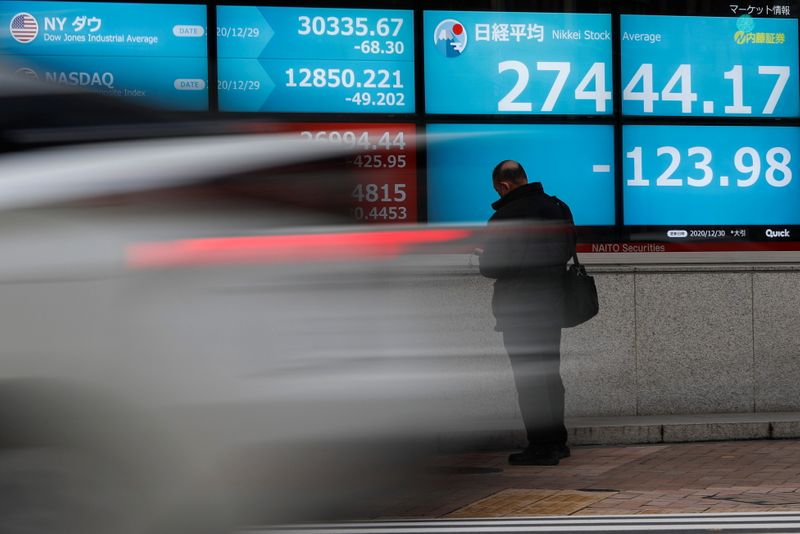By Tom Westbrook
SINGAPORE (Reuters) – The dollar hovered near a four-month high against the euro and scaled a five-week peak on the Japanese yen on Wednesday, as traders awaited U.S. inflation data and wagered a high reading could pressure the Federal Reserve to wind back policy support.
The greenback has already caught a boost from last week’s strong U.S. jobs data and from recent remarks by Fed officials hinting that asset purchase tapering is on the cards. Hot inflation could also add to expectations for rate hikes next year.
Six straight sessions of gains against the euro sent the common currency to its lowest since late March overnight. At $1.1720 in early Asia trade, the year’s low of $1.1704 is within range.
The yen, which has dropped for five consecutive sessions against the dollar, fell marginally to 110.65 per dollar in early trade, its lowest since mid July.
The greenback also touched a two-week high against the British pound overnight at $1.3827 and a one-month high of 0.9234 Swiss francs, holding near those levels on Wednesday.
“With what we have in hand now, we would expect this pattern (of dollar gains) to continue,” said Charalambos Pissouros, head of research at Cyprus-based brokerage JFD Group, with Wednesday’s inflation data offering another possible nudge.
“Another set of extremely high numbers, well above the Fed’s objective of 2%, could add to the view that the surge in inflation may not be transitory, and thereby, increase further the chances for an earlier normalisation by the Fed,” he said.
Economists polled by Reuters expect the pace of inflation to have eased slightly in July, with headline consumer prices rising 0.5% for the month compared with 0.9% a month earlier and the annual pace at 5.3%.
Fed chair Jerome Powell has repeatedly said the inflationary pressures are likely to be transitory and linked to economic re-opening, but traders still believe a high number could spur debate at the Fed especially as policy rhetoric begins to shift.
Two Federal Reserve officials said on Monday that inflation is already at a level that could satisfy one leg of a test for the beginning of interest rate hikes – though a third, Charles Evans, demurred on Tuesday.
Besides the inflation data, which is due at 1230 GMT, a speech at 1600 GMT by Federal Reserve Bank of Kansas City President Esther George will be closely watched, as will the troubling global spread of the Delta coronavirus variant.
South Korea reported a record number of COVID-19 cases on Wednesday, while outbreaks in China, through Southeast Asia and in Australia grow steadily. Hospitals in Texas and Florida are filling up with patients.
The Chinese yuan and South Korean won both touched two-week lows early in the Asia session, with the yuan hitting 6.4902 per dollar in offshore trade and the won touching 1,155.28 per dollar.
A measure of consumer sentiment in Australia slid to a one-year trough as lockdowns in major cities weigh, and the Australian dollar retraced some of the modest gains it enjoyed on Tuesday.
The Australian dollar last bought $0.7335, while the New Zealand dollar sat at $0.69970.
“Investors have to take on board the possibility of news on Fed tapering at a time when COVID is still very apparent in various parts of the world,” said Rabobank analyst Jane Foley.
“The consequence of this is likely to be a firmer dollar,” she added, especially if the euro breaches its 2021 low.



